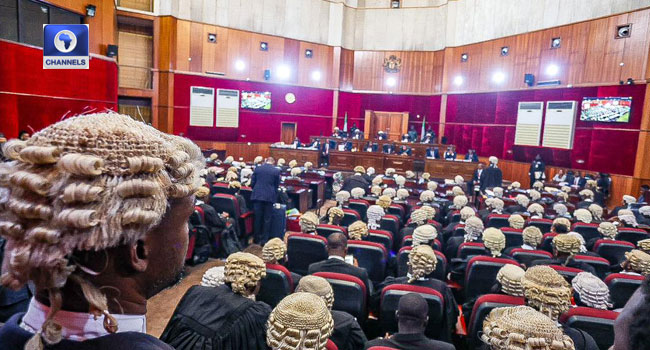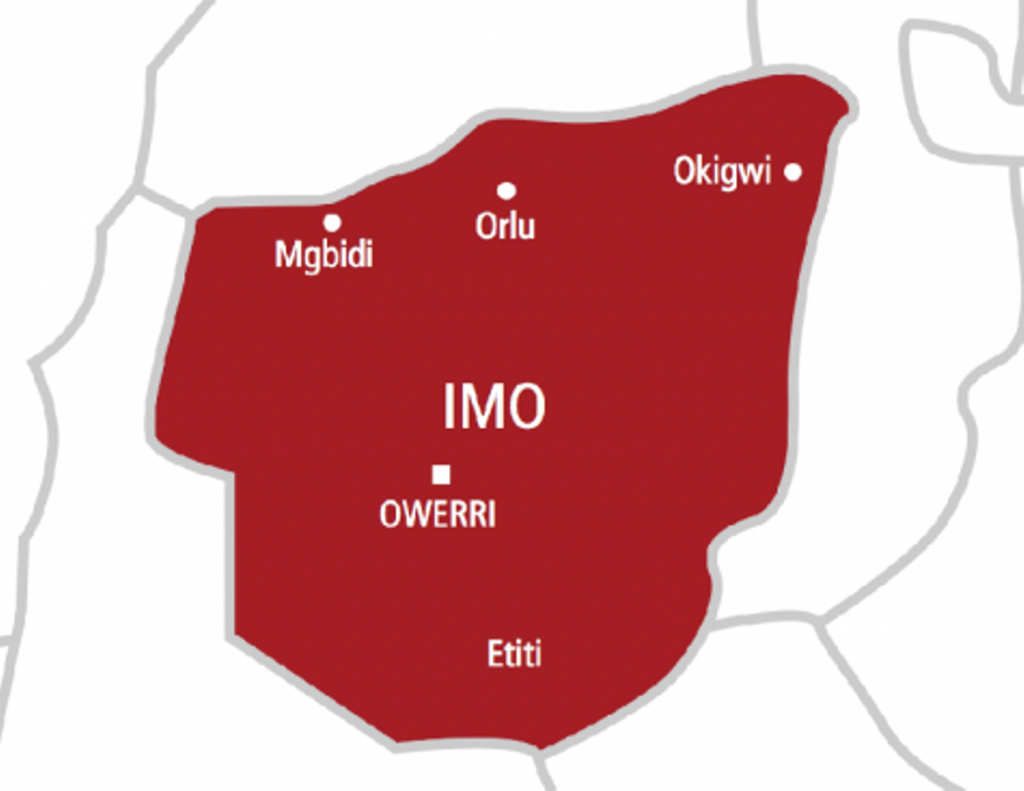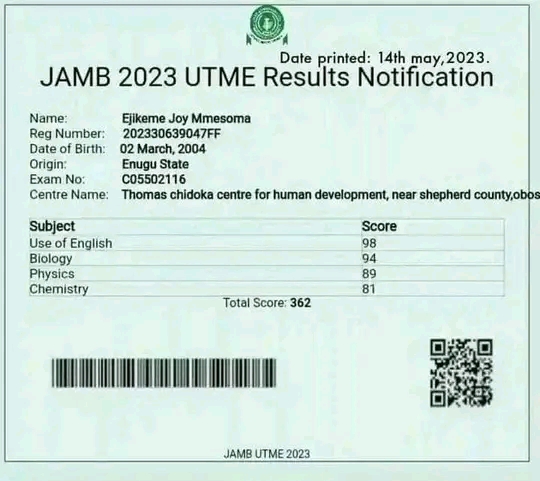ALERT: NEMA Lists 14 States That May Experience Huge Flood Soon
The National Emergency Management Agency (NEMA) has listed 14 states and 31 communities that may witness heavy rainfall that may lead to flooding from July 4 – 8. This…
Tribunal: Tinubu, Shetima tender 18 exhibits against Obi’s petition
President Bola Tinubu and Vice President Kashim Shettima on Wednesday tendered 18 exhibits at the Presidential Election Petition Court in defence against the petition filed by the Labour Party…
No gunmen attack at Imo secretariat, says Imo govt
The Imo government on Wednesday dismissed the report of an attack by unknown gunmen at the Imo State secretariat located along Owerri- Port Harcourt road in the state. The…
Court Admits Tinubu’s Chicago University Education Credentials
The Presidential Election Petitions Court has admitted as exhibits, the Chicago State University credentials of President Bola Tinubu, who formally opened his defence in a petition filed against his…
Fraudsters hack 1000 accounts using BVN linked numbers
The Zone 2 Police Command in Lagos State has confirmed the arrest of two members of a syndicate linked to the hacking of no fewer than 1000 bank accounts…
JAMB’s 3-year ban not fair because it’s not my fault — Mmesoma admits scoring 249
Ejikeme Mmesoma, a student of Anglican Girls secondary school in Nnewi, Anambra State, who was accused of forging her Unified Tertiary Matriculation Examination (UTME) result, has admitted she scored 249.…
DAILIES TOP STORIES: APC protests selection of principal officers, N’Assembly members back Akpabio, Abbas
Wednesday 05 July 2023 Fraudsters hack 1000 accounts using BVN linked numbers Tribunal: Tinubu tenders Chicago varsity admission letter, others Kogi govt debunks rumours of extrajudicial killings Brain drain:…
Oloyede: Investigations into Mmesoma’s result falsification concluded
The Registrar of the Joint Admissions and Matriculation Board, Prof. Ishaq Oloyede, on Tuesday, said the Board had concluded investigations on the case of the Unified Tertiary Matriculation Examination…
FACT-CHECK: How Mmesoma Ejikeme’s Fake JAMB UTME Result Came About
Credit: FIJ Nigeria Mmesoma Ejikeme, a 19-year-old student, has come under fire for allegedly parading a fake Joint Admissions and Matriculation Board (JAMB) Unified Tertiary Matriculation Examination (UTME) result. Ejikeme…
BREAKING: Ejikeme faked her UTME result, we will reward other candidate – Anambra govt
The Anambra State Commissioner for Education, Prof. Ngozi Chuma-Udeh has told the Punch Newspapers that the State already discovered Mmesoma’s claim to be false and had gone ahead to…
Fresh Crisis Looms In APC As Party Disowns List Of Principal Officers Announced By NASS Leadership
Fresh crisis appears to be brewing in the ruling All Progressives Congress, APC as the National Chairman of the party, Abdullahi Adamu has disowned the list of principal officers…
Report: Nigeria, Angola now biggest oil drilling markets in sub-Saharan Africa
Nigeria has equalled Angola as the largest oil drilling market in sub-Saharan this year, says a report by Hawilti and the Caverton Offshore Support Group Plc. Oil drilling involves…
INEC Calls Witness, Closes Defence In LP’s Petition
The Independent National Electoral Commission (INEC) has closed its defence in the petition filed by the Labour Party after calling one witness at the Presidential Election Petitions Court. …
UTME fraud: If we reveal all we know, people’ll be shocked — JAMB Registrar
The Registrar of the Joint Admissions and Matriculation Board, Prof. Ishaq Oloyede, Tuesday said that Nigerians will be shocked if the board decides to reveal the details of the…
Ganduje’s Commissioner, 5 Others Arrested Over N1bn Fraud
The Kano State Public Complaints and Anti-Corruption Commission has arrested one of the former commissioners that served under Governor Abdullahi Umar Ganduje and four others over allegations of one…












